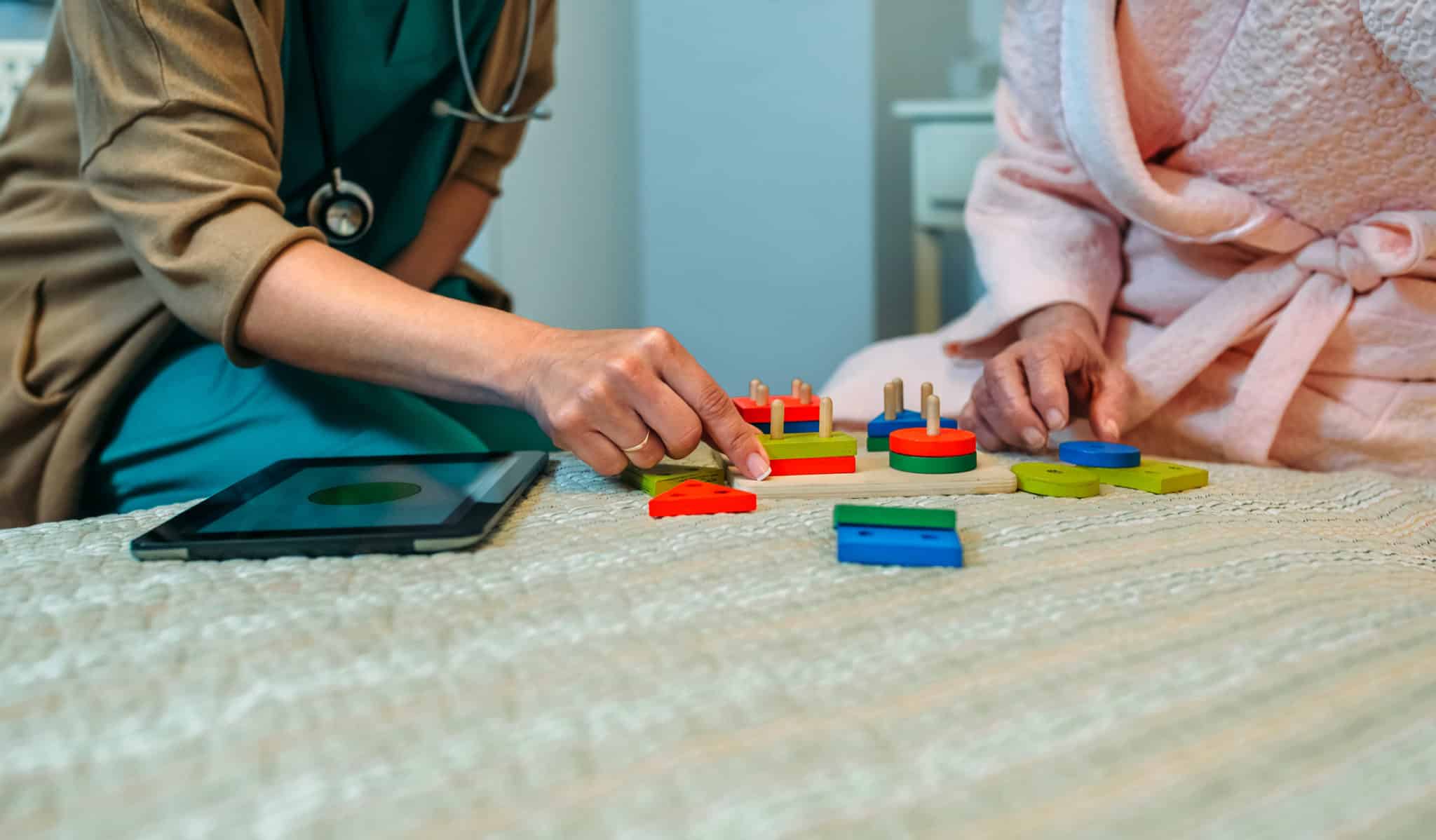How is Alzheimer’s Disease Diagnosed?

Alzheimer’s disease is the sixth leading cause of death in the USA, with 5.7 million Americans living with the condition according to the latest Alzheimer’s Association research. Early and accurate diagnosis of Alzheimer’s disease is critical to managing the health of a patient and could save up to $7.9 trillion in medical care and costs.
So, how is this disease diagnosed? Here are some insights from the experts at Tapestries Memory Care, UMC’s dedicated center of excellence for individuals suffering from all stages of Alzheimers and Dementia.
6 Early Symptoms of Alzheimer’s Disease
The first step in reaching an accurate diagnosis is for seniors and their families to be aware of the early symptoms of the condition, and to approach their medical practitioner with their concerns if the following is noticed:
- Difficulty remembering events.
- Social withdrawal, changes in mood and depression.
- Visual or spatial difficulties, misplacing items, and difficulty driving.
- Confusion regarding where they are, why they are in a specific location, or the passage of time.
- Difficulty finding the correct word or phrase to express themselves.
- Inability or difficulty in finishing daily tasks, solving problems, or making plans.
How Doctors Reach a Diagnosis for Alzheimer’s Disease
This is a fairly complex process, as the doctor has to work through various tests and data to ensure an accurate diagnosis. This is because these symptoms may be the result of other medical conditions.
A doctor, neurologist or geriatrician will evaluate the patient’s:
- Medical history, medication history and the symptoms being experienced. This is especially important if there is a family history of Alzheimer’s or dementia conditions.
- Mood and personality changes, if any.
- Memory and thinking abilities.
- Difficulties in daily life and routines, if any.
- Causes of the symptoms to see if they are linked to other conditions, medication interactions and other issues.
The doctor may then order tests to rule out other conditions or health issues, brain-imaging tests or even memory testing. A physical health examination will also be performed.
It’s understandable that people are reluctant to see their doctor if they experience worrying symptoms, but in reality, an early diagnosis gives you the best chance to manage your condition. It is also important to rule out other health conditions with similar symptoms, many of which are very treatable (including vitamin B-12 deficiencies and thyroid disorders) to ensure you get the right treatment.
Tapestries-Memory Care at The Jersey Shore
United Methodist Communities is no stranger to the care and treatment for adults with Alzheimer’s and Dementia diagnoses. In fact, in November of 2018, United Methodist Communities opened Tapestries-Memory Care at the Shores in Ocean City New Jersey. This specialized facility is designed for the unique concerns and caregiving of those with all stages of dementia. It offers apartment style, supervised living in a beautiful Jersey Shore setting.
To find out more about our Tapestries-Memory Care at The Shores, please visit our website at https://umcommunities.org/theshores/ and book your visit today.




